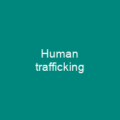Understanding Prostitution: A Complex Global Phenomenon
Prostitution is a multifaceted issue that has been around for centuries, with varying definitions and legal statuses worldwide. It’s not just about sex; it’s a complex web of social, economic, and ethical issues. How do you view prostitution? Is it exploitation or a legitimate occupation?
The Terminology: More Than Just Words
When discussing prostitution, the terms used can significantly impact how we perceive those involved. For instance, prostitute is often seen as derogatory, while sex worker aims to reclaim agency and dignity. Other alternatives like escort, call girl, or gigolo are also in use, each carrying its own connotations.
The Metaphorical Use of Prostitution: Selling Out
Prostitution isn’t just about sex; it’s a metaphor for selling out or debasing oneself. Think of D.B., who writes B-movie screenplays he considers morally debasing, or the term “political prostitute,” which describes those who sell their integrity for power and attention.
The Historical Context: From Medieval Times to Modern Day
Historically, prostitution was a necessary part of medieval life. Cities like Paris drew prostitutes due to their size and institutionalization. Sumptuary laws regulated them with distinctive clothing, and brothels provided safe spaces for both sex workers and clients. However, by the 15th century, attitudes began to harden against them.
The Global Landscape: Legal Status and Practices
Legal status varies widely. Some countries outlaw prostitution outright, while others regulate it. In New Zealand, laws against operating brothels and street prostitution have been struck down, promoting decriminalization. Meanwhile, in the Netherlands, it’s legalized but regulated.
The Dark Side: Human Trafficking and Child Prostitution
Prostitution is often intertwined with human trafficking, especially involving children. Estimates suggest 79% of human trafficking cases are for prostitution, making it a significant global issue. The Internet has facilitated this, with major sources including Thailand, China, Nigeria, and several European countries.
The Modern Debate: Decriminalization vs. Legalization
Decriminalizing prostitution aims to reduce harm and violence by providing safer working conditions for sex workers. Proponents argue it’s a form of labor that should be regulated rather than criminalized. However, critics see it as enabling exploitation.
The Role of Technology: Online Platforms and Safety
Online platforms have transformed how prostitution operates. Websites and apps facilitate transactions, but they also pose risks. Reviews can help sex workers find safe clients, while safety measures like regular health checks are crucial.
Survival Sex and the Elderly in Prostitution
Survival sex is a harsh reality for many. In North America, one in three homeless youth engages in it. Similarly, elderly women in South Korea sell sex to make ends meet due to lack of state pensions. These situations highlight the economic desperation driving some into prostitution.
The Future: Advocacy and Rights
Advocacy groups like Amnesty International and COYOTE fight for the rights of sex workers, pushing for safer working conditions and legal protections. As awareness grows, so does the push for more humane policies that recognize the dignity of those in this profession.

Prostitution is a complex issue with no easy answers. It’s about more than just sex; it’s about human rights, dignity, and the economic realities of many individuals around the world. As we continue to debate its legal status and practices, let us remember that behind every statistic lies a person’s story.
You want to know more about Prostitution?
This page is based on the article Prostitution published in Wikipedia (retrieved on December 23, 2024) and was automatically summarized using artificial intelligence.





